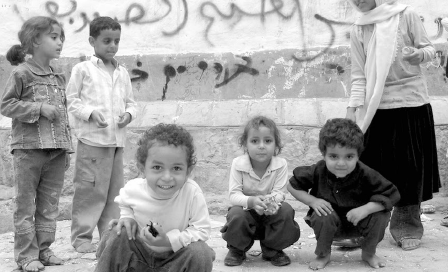
The idea of sending any form of US foreign aid to a poor and deeply flawed democratic nation like Yemen may seem highly unappealing on the surface, but the reality of the situation offers facts that make it an imperative for America to intervene with relief for the current government. The reason lies in the evident threat posed by an Al-Qaeda branch operating in the Arabian Peninsula and the anti-government forces in the northern and southern part of this republic.Presently, Yemen’s government is facing three threats within its borders. The list includes the Houthi Rebels in the northwest, the South Yemen Insurgency, and Al-Qaeda in Arabian Peninsula (AQAP) – which operates throughout the Arabian Peninsula region, including Saudi Arabia, Yemen, and Qatar.Together, these three groups pose a serious systemic threat to President Ali Abdallah Saleh’s government, because each and every one of them has a compelling interest in the demise or general incapacitation of this government – in addition to their own individual agendas.Either way, the attainment of either end is bad for the future of Yemen and the US. An ineffective or virtually nonexistent government is this region would allow for AQAP and other Jihadist extremist groups to create a new safe haven to plot against the international security of the world and the national security of the United States.The two local sources of social unrest and violence are a product of the distinctive history of Yemen, but each of them has been co-opted in varying degrees by AQAP and other similar organizations.The anti-government forces in the northwest are made of the Houthi, a minority belonging to a minor sect of Shiite Islam called Zaidiyyah,whose imams once ruled their current base of operation in Saada Province. This organization is currently engaged in the continuation of an ongoing civil war, called the Sa’dah Insurgency, that been an intermittent challenge to the overall stability of Yemen.This group was created in 2004 and was originally led by a dissident cleric named Hussein Badreddin al-Houthi. Since its founding the Sa’dah Insurgency’s area of operation has spread to the Yemeni provinces neighboring Saada and then into Saudi Arabia. Yemeni security forces killed him not long after the start of his insurgency. This hasn’t prevented four more outbreaks from the Houthis,each more violent than the last.These outbreaks of violence have been assisted, according to US & Yemeni intelligence sources, by AQAP, Hezbollah, and the Islamic Republic of Iran – all of whom are suspected of funding and coordinating attacks against the Yemenite government. So far there have been 2,200-2,800 government troops killed and 8,000 wounded.According to the most recent Country Reports on Human Practices from ploughshares.com:”Between 3,700 and 5,500 militants and civilians are said to have been killed since the first outbreak of violence on June 18, 2004. Accurate numbers have been difficult to obtain as the government continues to censor media coverage of the fighting between the Yemeni Army and Shabab al-Moumineen, but most deaths are said to be Army and rebel casualties with civilian fatalities being in the hundreds. Tens of thousands have also been displaced from their homes throughout the three-year insurgency.”Meanwhile, there’s a separatist movement in Southern Yemen that fomented social unrest and perpetrated bombings against the Yemeni Army and Security forces in addition to civilians. This insurgency is rooted in the remnants of the People’s Democratic Republic of Yemen – which once a client states of the former USSR during the Cold War – and elements that perpetrated the 1994 Civil War. Ali Salim al-Beidh, one of the secessionist leaders from the 1994 uprising, is now leading the South Yemen Insurgency after a 15 year exile.This group has used both peaceful and extreme violence to make their points about the corruption within the government of the Republic of Yemen. Since the recent outbreak, which most sources date as April 27, 2009, 23 members of the Government’s forces have died as a result of attacks on government facilities and checkpoints. The numbers of civilian casualties have yet to be accounted for.Nasir Abdel Karim al-Wuhayshi, the leader of AQAP, has expressed his organization’s support of the Southern Yemenite separatist movement. The separatists have denied having any connections to AQAP. This is the same man who is said by some to have rebuilt AQAP from a loose organization into a powerful force on the Arabian Peninsula since his rise to the top of AQAP in 2006.So far, the Yemeni Government has held up relatively well under the strain in spite of heavy losses in military personnel and the civilian populations affected by the violence of the bloody conflict in both the north and south. But they are clearly under strain especially with the presence of 200-300 AQAP operatives along with the Christmas Bomber from Nigeria.The US is in a position to lend military and economic assistance to Yemen for the sole purpose of solidifying control over its sovereign territory. There’s no need or option for deploying US forces into Yemen – due to the limits of America’s present capacity to support its current contingents and also because of a lack of political will on Main Street to get involved with the troubles of the Yemeni government.The prescription should include military hardware, military advice, US foreign aid, and intelligence sharing with the Yemeni government. What we can expect is to have a more stable country with a government that can maintain control of most its borders and with a desire to build up the infrastructure and economy of its nation to totally clear its territory of AQAP and all such organization.America may be stretched right now, due to its economic troubles and other foreign commitments across the world, but it remains a necessary obligation for President Obama to lend aid to a country that threatens to become a new haven for Al-Qaeda. Dealing with a corrupt government is better than allowing an openly hostile and anti-American organization set up shop in the Middle East.




















































